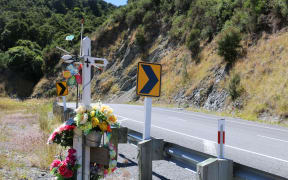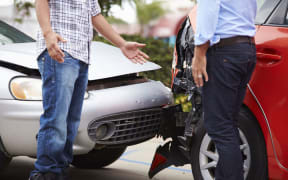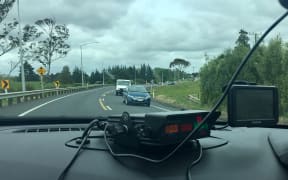New Zealand could reduce its road toll by investing more in its roads, including installing median barrier strips, a visiting transport researcher says.
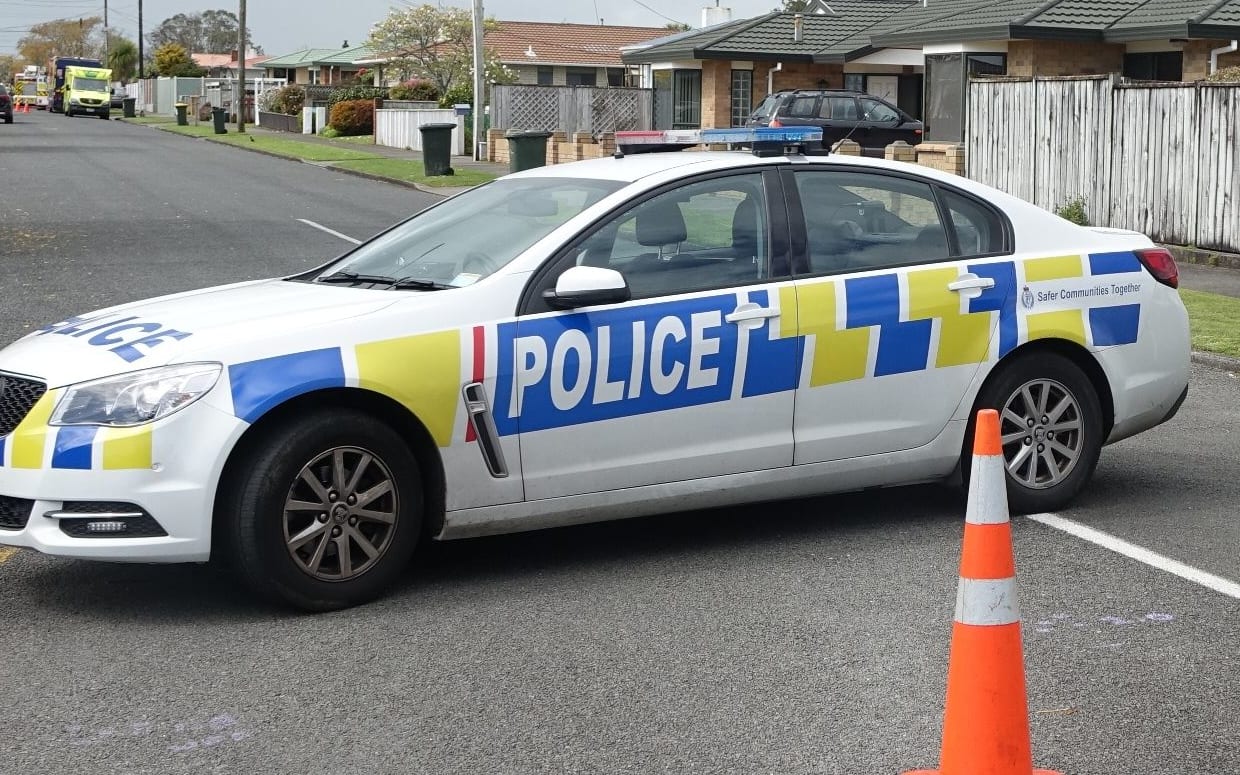
Photo: RNZ / Robin Martin
Dr Matts Belin from the traffic safety unit of the Swedish Transport Administration said serious crashes have dropped by 90 percent in his country after median barriers were installed across its network of highways.
"If you have a road where you've allowed 100km/h and you don't have any middle barrier, that is inherently an unsafe system - one mistake will end in a catastrophe."
Dr Belin was the keynote speaker at a transport conference in Nelson this week, organised by the New Zealand Traffic Institute - a transport policy advisory group.
Its vice president, John Goettler, told RNZ that if New Zealand had matched Sweden's success in reducing its road toll, then 250 lives might have been saved this year.
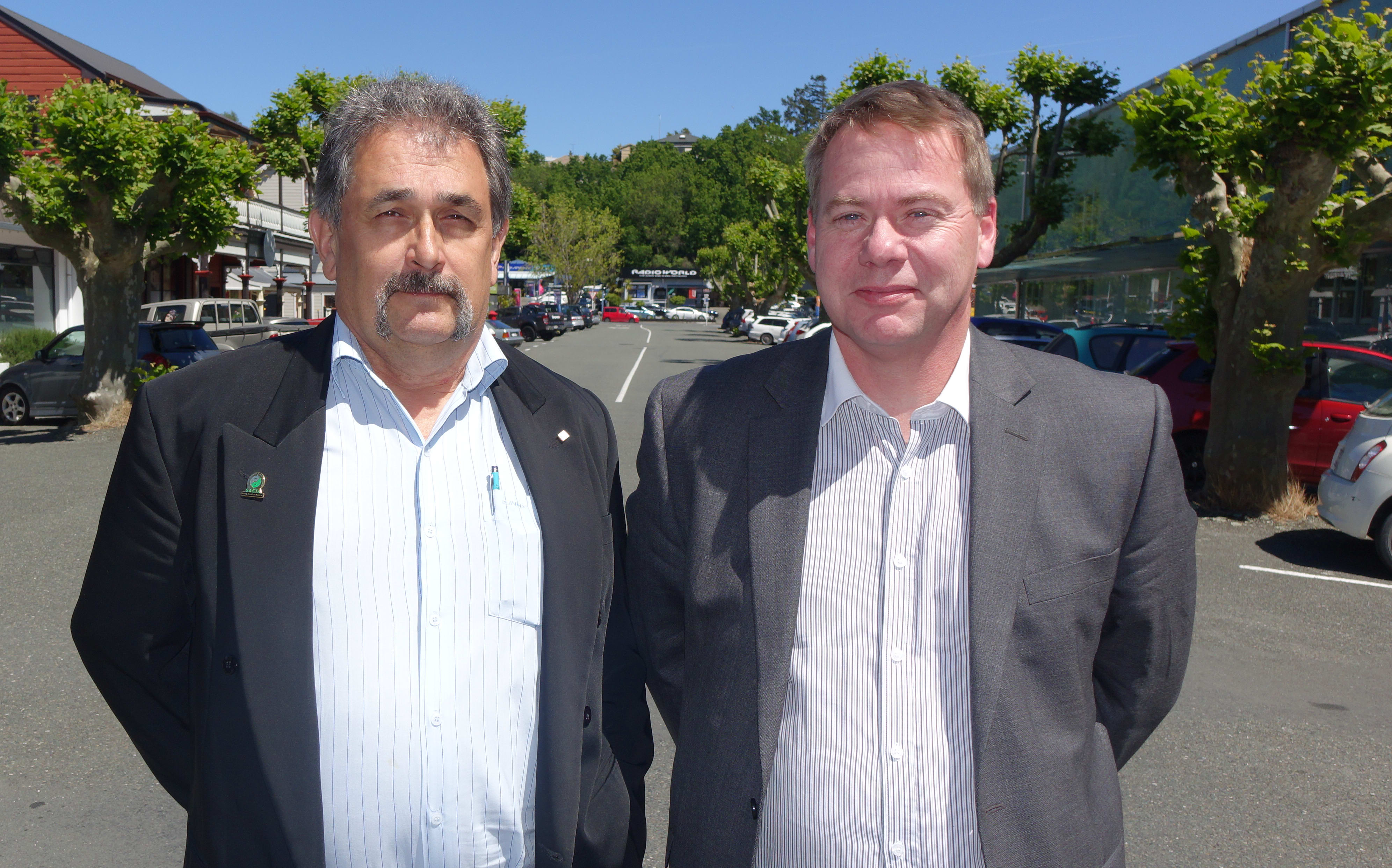
John Goettler and Dr Matts Belin Photo: RNZ / Tracy Neal
The country is heading for a horror road toll with 323 killed so far this year. The police are worried it will go higher. The Traffic Institute (Traffinz) said in a report that per head of population, there are three times more people killed on New Zealand roads than in Sweden.
Dr Belin said a policy shift in Sweden 20 years ago had reduced road fatalities from seven in every 100,000 people, to three in every 100,000.
In October 1997 the Swedish parliament adopted the Vision Zero road safety policy, which moved away from blaming only drivers to enforcing shared responsibility among drivers, organisations that design vehicles, roads and those operating the transport system.
"If you take a problem like drinking and driving, the traditional approach to solve that problem is enforcement, information and education. Of course we are still working with these issues but we're moving that problem from a behaviour problem, to a design problem," Dr Belin said.
He said Sweden had put the policy into practice by investing in comprehensive engineering programmes for its main highways and in urban areas, and would soon be focusing on regional networks.
NZTI's Mr Goettler said drivers, the environment and New Zealand's older vehicles are all part of the problem.
A priority topic at the conference was how to address the country's steeply rising road toll. Mr Goettler said the institute has been watching the road toll over the past four years, and had noticed a trend in larger vehicles such as trucks, buses and trains inflicting increasing damage against more vulnerable road users, including cyclists and pedestrians.
He said it is time for road controlling authorities to start looking at this trend.
"We can't stop Kiwis from falling over and scratching their leg but we can certainly stop them from being so badly maimed that we have to look after them for the rest of their lives, and we can certainly stop them from being killed."
Dr Belin said Vision Zero was a "paradigm shift" in road safety management, and Sweden was becoming seen as an exemplar for the rest of the world.
"Most countries focus on creating the perfect human, but we think differently - we have created a system for the humans because people aren't perfect. We have to accommodate for all sectors of the population, from children to the elderly."
Mr Goettler said there were many similarities between Sweden and New Zealand roads, from the length across the network (about 100,000km) to the terrain they crossed.
He said like New Zealand, Sweden also had a lot of old cars, but they tended to be "old Volvos", which were considered safer for the conditions than the old Japanese imports typically driven in New Zealand.
"If anyone thought about it morally they would never want anyone killed because of using a transport system," Mr Goettler said.


